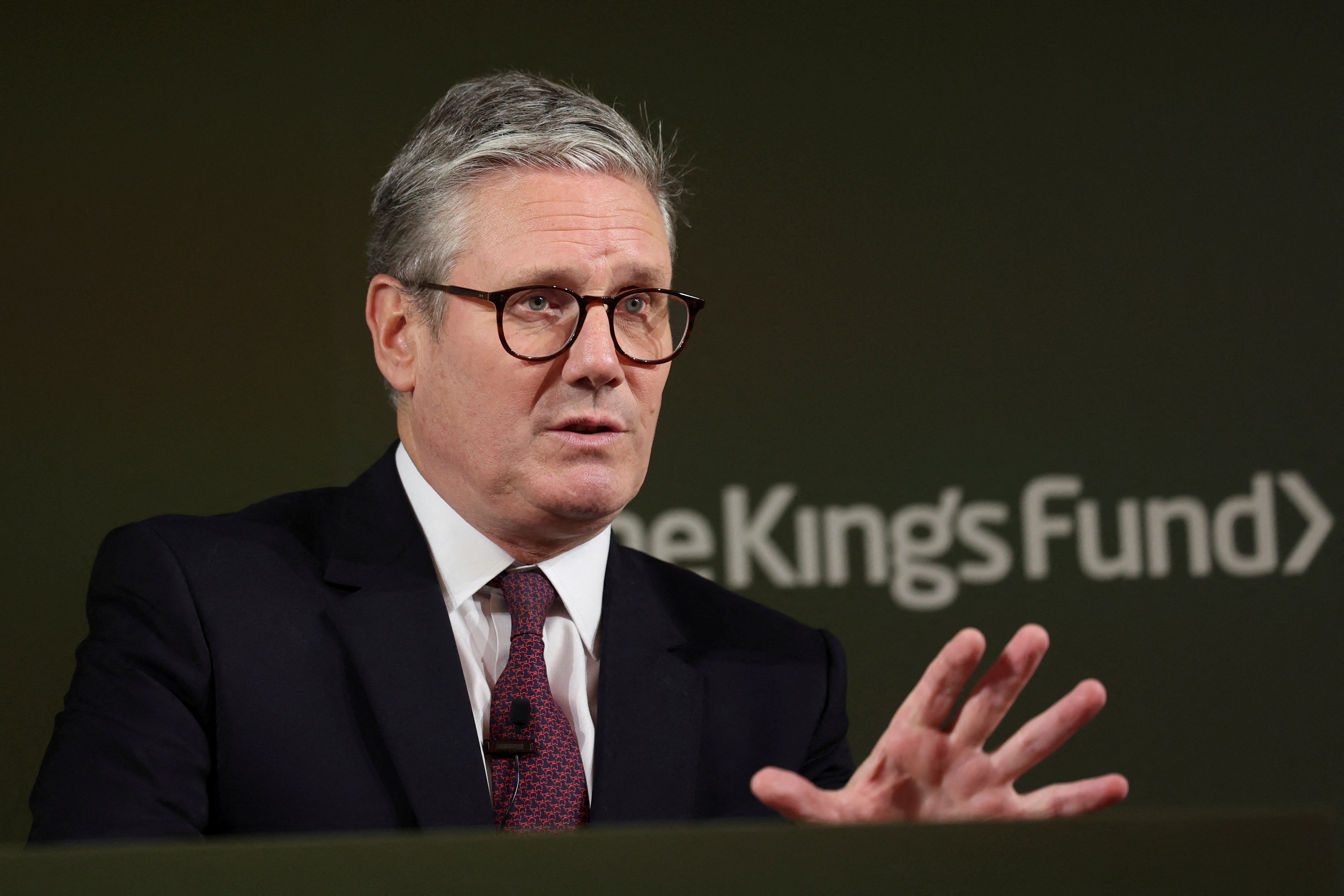Are all governments doomed to repeat the mistakes of their predecessors?
The prime minister and his chancellor are in danger of sleepwalking into a familiar trap when it comes to public spending. If they want to bring about real change, it’s time to lose the financial straitjacket, writes Andrew Grice


Keir Starmer came to power with the best of intentions: Labour, he promised, would avoid “sticking plaster solutions” and address the long-term problems the Conservatives had ducked.
Yet some ministers worry privately that Starmer and Rachel Reeves are about to sleepwalk into a familiar elephant trap, by cutting spending on building projects to protect the day-to-day budgets of public services in next month’s Budget and the spending review that will follow.
The Treasury has often persuaded chancellors to pick the low-hanging fruit of cutting invisible long-term investment plans to fill very visible holes in struggling frontline services. Since 2010, the Treasury has been the overwhelming power in the Whitehall land, its grip on the purse strings allowing it to outmuscle the two other sides of the power triangle in 10 Downing Steet and the Cabinet Office.
The Treasury’s bean counters rule the roost and put controlling spending above investment. Yet it can be penny wise, pound foolish: cuts to the school building programme (while borrowing was cheap), landed the government with an £11.5bn backlog and saw schools close because of crumbling concrete.
With the NHS facing a financial crisis this winter, Starmer’s “no more money without reform” mantra is about to be put to the test. The NHS Confederation, which represents 500 NHS bodies, warns of a “very real risk” of a crisis this winter, with ambulances queuing outside hospitals, overcrowded accident and emergency departments and people stuck in hospital because of the problems in social care.
Matthew Taylor, its chief executive, said: “Emergency funding will be needed in the autumn Budget, not least to boost staff and capacity in social care. We also cannot repeat the mistakes of the past by raiding already overstretched capital budgets to plug holes in day-to-day spending.”
Previous winter crises offer a graphic example of how governments lack the time and space for long-term decisions because they are inevitably sucked into fighting one fire after another.
Another problem is that reforms often require money upfront. The government’s plan to shift resources from hospitals to GP-led care in the community is laudable, but it will be very difficult to reduce the money going to hospitals when they are under so much pressure.
To his credit, Starmer is trying to avoid the mistakes of the past by adopting five cross-departmental missions to ensure his government takes a more strategic approach. However, the irony is that cuts in capital spending would undermine his number one mission – for the UK to have the highest economic growth in the G7.
It’s official: investment boosts growth, according to the Office for Budget Responsibility fiscal watchdog. It found that a sustained increase of 1 per cent in public investment could increase output by 0.5 per cent after five years and 2.5 per cent in 50 years. Not to be sniffed at when the economy is flatlining.
Ominously, Reeves cut road and rail projects in July to help fill the £22bn “black hole” she blames on the Tories. Also ominous was the failure of ministers to commit to the £37bn of capital spending Lord Darzi said in his review the NHS needs to improve its flagging productivity. The former Labour health minister said that sum could have prevented the backlog in maintenance, new technology and equipment.
Reeves might try to square the circle by announcing a new wave of public-private partnerships – a PFI 2.0 – to allow more hospital, school and transport projects to go ahead. The Treasury is studying proposals from the Future Governance Forum think tank.
The move would not be without risk or controversy, since hospitals and schools are still saddled with huge bills from the first wave, abandoned after the collapse of the Carillion outsourcing company in 2018. But it would be worth a try, as long as there were better safeguards for public services.
Some ministers fear Reeves’s iron-clad commitment to fiscal discipline will trump the drive for the higher growth on which the government’s success hinges. As one insider told me: “We have made a good start, for example on housebuilding, but does it add up to a programme that will really deliver higher growth? Not yet. That’s what the Budget must provide.”
Reeves should prove the doubters wrong by using her Budget to reform her fiscal rules to allow higher borrowing for productive investment, to count a new hospital or school as an asset rather than a liability. You cannot cut your way to growth.
Starmer’s stark message to the NHS is “change or die”. It also applies to his own government. It won’t be able to deliver the change it promised at the election without loosening its self-imposed fiscal straitjacket.






Join our commenting forum
Join thought-provoking conversations, follow other Independent readers and see their replies
Comments